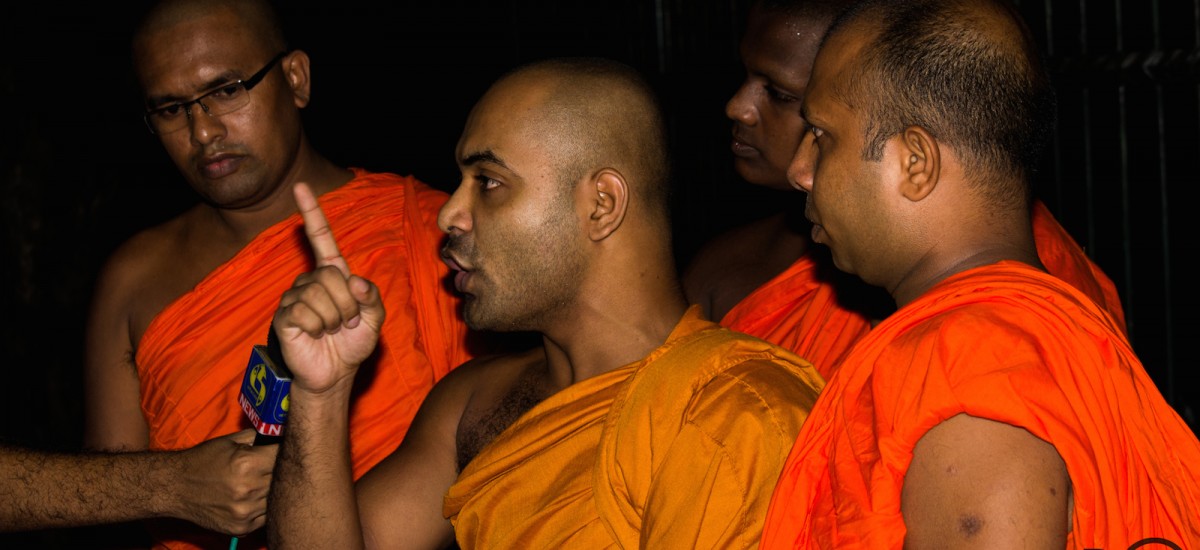Photo courtesy Dinouk Colombage
President Chandrika Bandaranaike Kumaratunga has since her graceful retirement from office more than eight years ago after the completion of a constitutionally mandated two term limit, busied herself with an impressive portfolio of issues internationally, issues which are also crucial to our South Asia region. Her status as an elder stateswoman, allows her to address these issues with moral authority and at the highest levels of opinion and policy making. These issues have included the education of the girl child, HIV/AIDS prevention, universal access to potable drinking water, participation of women in conflict resolution, prevention of domestic violence and a range of other gender issues. She has done these through several institutional frameworks, all with the highest impeccable credentials, including the world renowned Clinton Global Initiative, the Club de Madrid, an exclusive association of former heads of state and government and her own Colombo based regional policy think tank, the South Asia Policy Research Institute (SAPRI).
For the major part of the past eight years, the former president has maintained a dignified silence on domestic issues, providing the space for her successor in office and one time prime minster to run the affairs of state as he sees fit. However on several prior occasions during this time, the former president, as an elder statesperson did break her stoic silence to express her angst and serious concerns with regard to domestic Sri Lankan governance issues, including the jailing of the opposition presidential candidate, the impeaching of the Chief Justice, the shooting deaths of polluted water protesters in Weliveriya, Gampaha, the rushing through of the controversial 18th amendment to the constitution, the compromising of crucial foreign relations with India, ongoing human rights abuses, the non implementation of the LLRC recommendations and the consequential lack of progress towards post war national reconciliation.
Religious intolerance in Sri Lanka
In the above context, President Kumaratunga a couple of weeks ago released a report on religious intolerance in Sri Lanka. The report had been prepared by her policy think tank, SAPRI, which had used inter faith dialogue as its methodology to arrive at its recommendations. The objective of President Kumaratunga’s intervention was to try and take the conclusions and recommendations of the interfaith dialogue to the current political leadership of the country, both in the government and the opposition. Sadly while she received a cordial reception from the main opposition United National Party (UNP), the former President was cold shouldered by the government of her former Prime Minister, led by the SLFP, a party which her father and mother foundered and which she led back to power from near extinction in 1994.
Extremists tear into CBK
Sri Lanka has sadly seen the rise of neo fascist religious extremist groups, which hate monger with impunity against religious minority communities in Sri Lanka. Strengthened through sympathetic propaganda in the state media and emboldened by near impunity from the law, these groups which started their anti minority campaign, against Hallal certification on commercial products have since expanded it to include minority businesses, mosques and Christian churches. The modus operandi is simple, the lawlessness of the jungle, namely threats and mob violence. These extremists have been the pit bulls which have torn into the former president, questioning her motives and generally attacking the messenger, since they saw her intervention as an obstruction to their bigotry. Notwithstanding regime propaganda, once hopes the moral beacon of light and hope ignited by the former president will shine brightly to dispel anti minority bigotry and intolerance in the Sri Lankan society and polity.
The Government denies
The Rajapakse Administration’s official response to religious intolerance in Sri Lanka has been as predictable, as it has been sad. They have officially denied the existence of any religious intolerance problem in the country. Just like with judicial non independence, corruption, waste, abductions, custodial torture, non implementation of the LLRC, violent crackdowns on dissent and now religious intolerance, the government’s official response is to deny the existence of a problem, which also eliminates the need to address it and allows it to continue to flourish. This despite the fact that incidents like the assault on the Dambula mosque, the No Limit and Fashion Bug attack and the assault on the Kottawa and Hikkaduwa Christian churches are all captured on video, shown on the local evening TV news and even today is safely stowed in cyber space and shown to the world on YouTube. The list of incidents are generally reported to the police, carefully documented and presented to authorities. Still the government response is no, this doesn’t happen. Complementary to the mob violence the government is seeking through circulars of the Ministry of Buddha Sassana to curb the free exercise and practice of the faith of religious minorities. The Ministry circulars, prima facie ultra vires the constitutional guarantees of religious liberty, are linked to the violence since the Police are now in the practice of telling victims of religious violence, to get “permission” or “registration” from the Ministry to practice their faith or otherwise stop. So providing via the law enforcement and an allegedly illegal circular, the objectives the mobs hoped to achieve.
It is in this context, that President Kumaratunga has taken a public stand and brought the issue to the forefront of the public debate. Blanket denials by the government of existential ground realities are not credible. Reining in the extremist attackers (identities clearly available on YouTube and their own well publicized press conferences) and engaging with the excellent recommendations of the inter faith dialogue brought together by the former head of state, would be a good way to address the situation.

